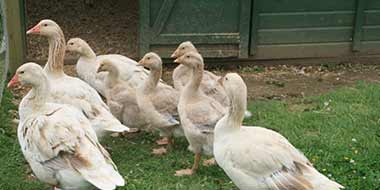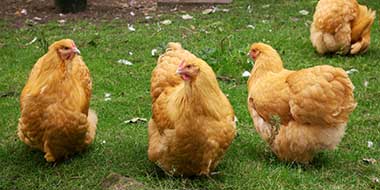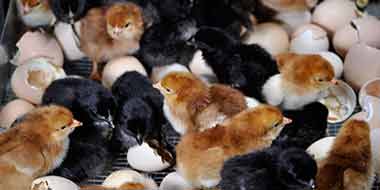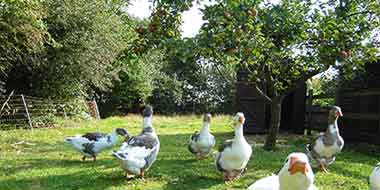Guinea fowl are notoriously difficult to sex – it’s hard to tell keets apart until they are at least 8-10 weeks of age when they start to call. Male guinea fowl have a one-syllable call that sounds like they are saying “wheat” and the female guinea fowl has a two-syllable call that sounds like “buck-wheat”.
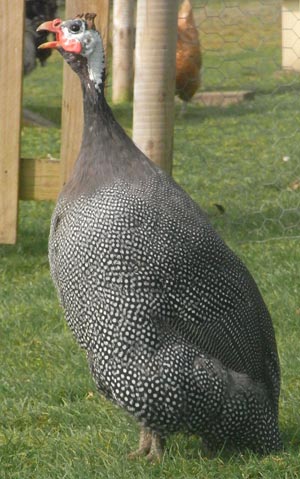 My neighbour once said to me she thought I was cutting metal with a saw, it certainly isn’t a ‘neighbour friendly sound’ once they get going, so if you’ve got close neighbours and don’t want to upset them, don’t keep Guinea fowl too close!
My neighbour once said to me she thought I was cutting metal with a saw, it certainly isn’t a ‘neighbour friendly sound’ once they get going, so if you’ve got close neighbours and don’t want to upset them, don’t keep Guinea fowl too close!
Just to confuse matters, females can also call like the male bird from time to time, so be sure to listen to them on a few occasions before making any assumptions.
Adult males are usually larger with bigger wattles and head furnishings as you will see in the pictures at the bottom of this page.
As they grow, this difference soon becomes apparent and is a good way to double check their sex.
The head of the male looks different to the female as you can see, note the slightly larger wattles on the male.
Hopefully this will help you with sexing Guinea fowl.
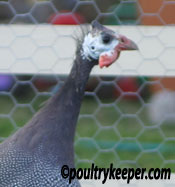 |
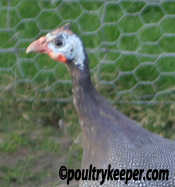 |
| Male Guinea Fowl | Female Guinea Fowl |

